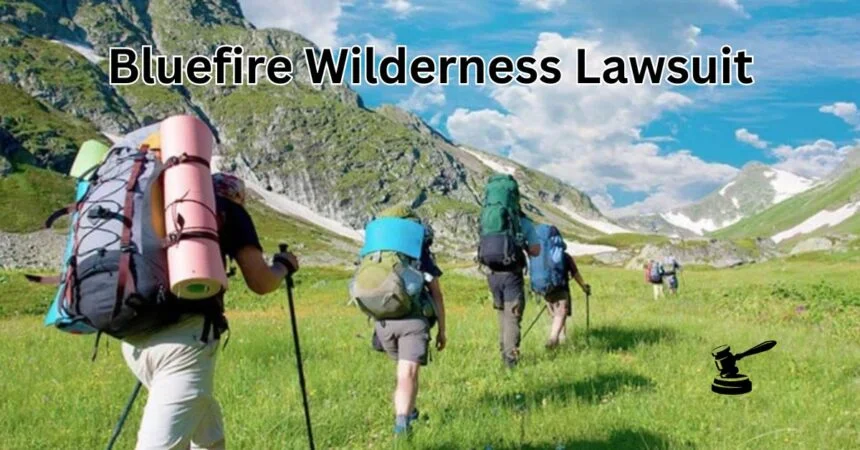1. What is Blue Fire Wilderness Therapy?
Blue Fire Wilderness is a therapeutic program that operates in remote areas, offering outdoor adventure therapy combined with traditional clinical approaches.
These activities aim to foster personal growth, self-esteem, and resilience. Trained therapists typically lead these programs, integrating therapy sessions into the activities.
2. The Origins of the Lawsuit
The Blue Fire Wilderness lawsuit emerged in the context of broader concerns about the safety, efficacy, and ethical standards of wilderness therapy programs. The lawsuits primarily revolve around accusations that Blue Fire staff failed to provide adequate care, potentially leading to physical and emotional harm.
Several factors contributed to the lawsuit’s emergence:
- Negligence: Families allege that the staff were undertrained or unequipped to handle serious psychological or medical conditions, leading to severe consequences for the participants.
3. Key Allegations in the Blue Fire Wilderness Lawsuit
The lawsuits brought against Blue Fire Wilderness focus on a variety of claims that suggest systemic issues within the program. These allegations include:
- Inadequate Medical Care: Plaintiffs argue that Blue Fire did not provide appropriate medical care for participants who required it. In some cases, individuals with pre-existing conditions were not monitored or treated correctly, leading to worsening symptoms.
- Some reports say that the programs pushed participants beyond their physical limits without adequate safety protocols.
- Emotional Abuse and Psychological Trauma: Former participants have shared stories of emotional distress caused by the treatment they received. Some have claimed that they were isolated for long periods, leading to feelings of abandonment, depression, and anxiety.
- Failure to Report Injuries: In some cases, families have claimed that the program did not inform them of injuries sustained by participants.
These allegations reflect broader concerns about the regulation of wilderness therapy programs and whether they operate with sufficient oversight to ensure participant safety.
4. Legal Battles and Their Impact
The Blue Fire Wilderness lawsuits are part of a growing trend of legal actions targeting wilderness therapy programs. These lawsuits aim to hold such programs accountable for any harm or negligence inflicted on participants, many of whom are minors.
In the legal proceedings against Blue Fire, several significant issues have come to the forefront:
- Parental Consent and Informed Decision-Making: Many parents sending their children to wilderness therapy programs may not fully grasp the risks involved. The lawsuits allege that Blue Fire misrepresented the program’s safety and effectiveness, providing insufficient information about potential dangers.
- Lack of Government Regulation: Wilderness therapy programs like Blue Fire operate in a largely unregulated space. Few federal or state regulations ensure the safety and ethical treatment of participants. This regulatory gap has made it difficult for families to seek redress or hold these programs accountable.
Emotional and Financial Toll on Families:The legal battles have caused emotional strain and financial burden for families.
5. Industry Response and Calls for Reform
The Blue Fire lawsuit is just one of several that have brought wilderness therapy programs under the microscope. In response, many in the industry have begun advocating for reforms to ensure the safety and well-being of participants.
- Increased Regulation and Oversight: One of the most significant calls to action has been for greater regulation of wilderness therapy programs. Advocates argue that such programs need standardized guidelines and independent oversight to ensure the safety and ethical treatment of participants. This could involve federal or state agencies stepping in to monitor operations and set safety standards.
Critics say many staff members lack the medical, psychological, or therapeutic expertise needed to handle participants’ complex needs.
- Many parents enter wilderness therapy programs without fully understanding the risks and challenges their children may face.
6. The Broader Implications for Wilderness Therapy
Conclusion: A Call for Balance and Accountability
The Blue Fire Wilderness lawsuit underscores the importance of balancing innovative therapeutic approaches with participant safety, ethical standards, and accountability.
Wilderness therapy offers a unique mix of adventure and treatment.
For families considering such programs, the Blue Fire Wilderness lawsuit is a reminder to thoroughly research and vet wilderness therapy options.
. It important to ensure the chosen program adheres to high standards of care. The legal issues highlight the need for programs that are transparent, well-regulated, and staffed with qualified professionals who prioritize safety. Reade More: finalizeit


